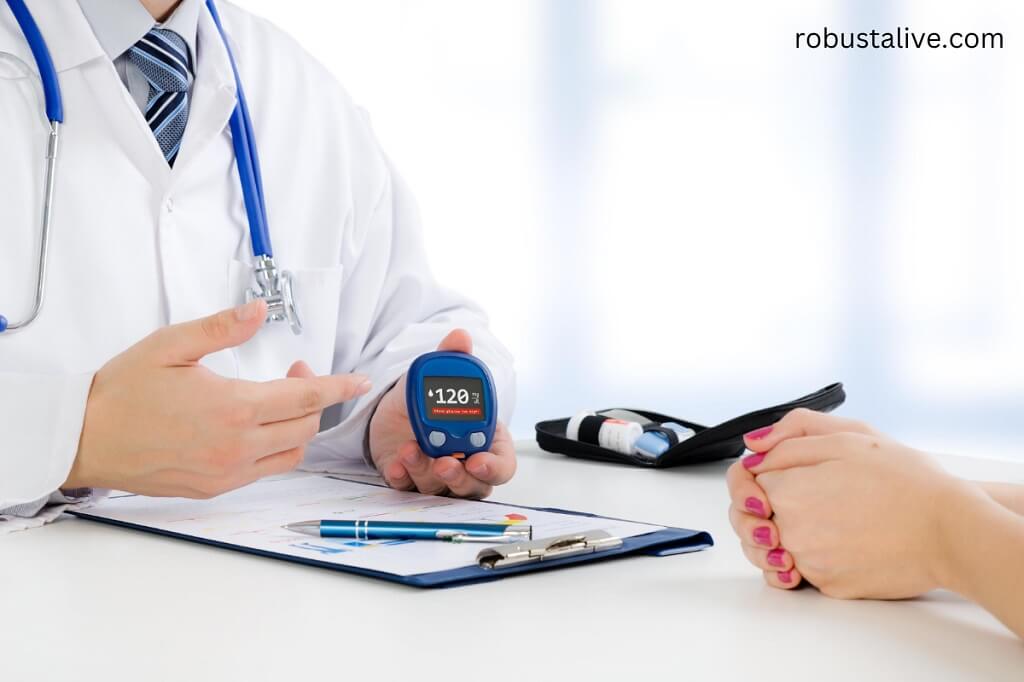Risks with Type 2 Diabetes – Risk Factors and Prevention

What Is Type 2 Diabetes?
Type 2 diabetes is generally a lifelong ailment that hinders the functioning of your body from using insulin the way it should. Type 2 diabetes people have insulin resistance. Old and middle age people are at high risk of diabetes. It is known as adult-onset diabetes. But type 2 diabetes also affects children and teenagers mainly because of their overweight and is called childhood obesity.
Who are at high risk?
Following people at high risk of getting type 2 diabetes:
- Overweight
- People 45 years or older
- Have a sister, brother, or parent with type 2 diabetes
- Prediabetic
- People who are not physically active
- Have gestational diabetes during pregnancy or given birth to a baby of more than 9 pounds
- American Indian, Latino or Hispanic, Alaska Native person, or African American. In addition, some Pacific islanders are at high risk of developing type 2 diabetes.
You will also be at higher risk if you have non-alcoholic fatty liver disease. With the help of positive changes in your lifestyle, you can delay and even prevent type 2 diabetes. The positive lifestyle changes include having a healthy diet, regular physical activity, and being overweight.
What is the leading cause of diabetes complications?
High blood sugar levels in our body result in many risks with type 2 diabetes. It can have a severe impact on your vessels and nerves. If the blood vessels don’t work properly your body will not be able to circulate the blood properly in all body parts. It will affect the nerves due to which you can lose the sensation in specific body parts.
Once your blood vessels and nerves are affected in one body part, it will most probably affect the other parts. So if it affects your feet, you can have serious health complications, including heart issues.
The high HbA1c levels mean you will be at increased risk for type 2 diabetes. HbA1c is glycated hemoglobin. It is produced when the blood sugar sticks with the blood cells and starts building up in the blood. It’s measured with the help of a blood test that shows the average of your last three months’ glucose level. A high HbA1c means you have high sugar amount in the body.
In addition, a slight increase in the HbA1c level can put your health at risk. Risks with type 2 diabetes are not only related to high sugar levels but also smoking, high blood pressure, high cholesterol, and nerve damage can put you more at risk.
Major complications of diabetes

Graphics Credit: Robustalive.com
You must have heard from your healthcare provider about the type of diabetes complication. Generally, there are two types: Chronic complications; the ones that build up over time, and acute complications; the ones that can happen at any time.
Chronic complications
These are long-term problems that develop gradually and can result in serious issues. They can affect your health badly if left untreated.
Foot issues
Diabetes foot problems are severe, and if left unchecked, they can even result in amputation. High blood sugar levels can damage blood circulation, and nerve damage can affect foot sensation. It also results in the slow healing of wounds, sores, and cuts. That’s why you must consult your doctor if you feel any sudden change or infection in your feet.
Eye issues (Retinopathy)
Some diabetic people can develop eye diseases, also known as diabetic retinopathy. It can affect their eyesight. If the retinopathy is detected early from the eye screening test, it becomes easy to treat and usually doesn’t cause any eyesight issues.
Kidney
Diabetes can damage your kidneys with time, which will result in less removal of the wastes from the body. High blood glucose and high blood pressure levels also cause it. It is generally known as kidney disease or diabetic nephropathy.
Heart
When you have diabetes, high blood glucose levels can affect your blood vessels. It can result in strokes and heart attacks.
Nerves
Some diabetic people can also develop nerve damage due to high blood glucose levels. The nerves cannot correctly take the message between the brain and other body parts. That means the risks with type 2 diabetes include the way how we feel, hear, move, and see.
Gum Disease
High blood glucose levels can result in more sugar in the saliva. It will ultimately bring the bacteria that produce the acid to attack the gums and damage the tooth enamel. The gums’ blood vessels also get damaged, which increases the chances of gum infection.
Related conditions such as cancers
If you have diabetes you will be at higher risk of certain cancers. Some cancer treatments even affect your diabetes and will make it hard to control blood sugar.
Sexual issues in women
Risks with type 2 diabetes include damage to nerves and blood vessels that restricts the blood flow to the sexual organ resulting in the loss of sensation. High blood sugar can also result in a urinary tract or thrush infection.
Sexual issues in men
In men, the restricted blood flow to the sexual organs can result in difficulty in getting aroused. It can also result in erectile dysfunction and sometimes impotence.
Acute complications
It can happen at any time and may have long-term or chronic risks with type 2 diabetes:
Hypos- when the blood glucose levels get too low
Hyper- when the blood glucose levels get too high
Hyperosmolar Hyperglycemic State (HHS)
It’s a life-threatening emergency that accompanies the risks of type 2 diabetes. It results due to severe dehydration or extremely high blood sugar level.
Diabetic ketoacidosis (DKA)
It is also a hazardous situation that can badly affect the quality of your life. In this emergency, ketones start to build up in your body due to high blood sugar and lack of insulin.
Diabetes care – Prevention
Diabetes care is definitely a lifelong responsibility. We have shared the ten best ways to avoid diabetes complications that will benefit in avoiding the risks of type 2 diabetes. In these treatment plans, you will have to commit to round-the-clock carefulness.
Commit to the diabetes management
Your healthcare provider, a nutritionist, or a diabetes care specialist can help you learn essential diabetes management. Proper diabetes management can benefit you in the long run. Learn as much as you can about diabetes. Make healthy eating and physical activity a part of your daily routine.
Maintain a healthy weight and keep track of your blood sugar level. Take your medications properly according to the doctor’s description. Save the emergency number in speed dial if you need immediate help from the practitioners.
Don’t smoke
If you are a smoker, try quitting as soon as possible. Smoking increases the type 2 diabetes risk and can also result in many other health complications. Smoking risks include:
- Kidney disease
- Stroke
- Reduced blood flow in feet and legs can result in non-healing ulcers, infections, and possible amputations.
- Nerve damage
- Heart diseases
- Worse the blood sugar management
- Premature death
- Eye diseases that can result in blindness in the worse conditions
If you cannot quit, ask the healthcare experts for help. They will indeed have many ways that can work for you.
Keep your cholesterol and blood pressure in control
Like diabetes, high blood pressure can harm your blood vessels. High cholesterol is a serious concern as the resulting damage cans worse the condition, especially when you have diabetes. When both of these conditions come together, they can result in stroke, heart attack, and other life-threatening diseases.
Eating a healthy, low salt and reduced-fat diet that doesn’t include any alcohol can benefit in controlling high cholesterol and high blood pressure levels. Your healthcare provider can also give you some medications if necessary.
Regular physical and eye exam
Must schedule at least 2 to 4 diabetes routine checkups in a year and a complete physical and eye exam once a year. During the physical checkup, your healthcare provider will ask about your nutritional and activity level. It will also detect your diabetes-related complications. It also includes the signs of nerve damage, kidney disease, and heart disease.
Physical exams are very beneficial in screening your medical issues. They will also examine your feet for problems that may need treatment. Your eye specialist will look for retinal damage, glaucoma, or cataract signs.
Update your vaccines
Diabetes can increase specific illness risks. Routine vaccines benefits in their prevention. Consult your healthcare specialist regarding the following:
- Flu vaccine: Having a flu vaccine every year benefits in preventing severe health issues from the flu and keeping you healthy throughout the flu season.
- Hepatitis B vaccine: Diabetic adults younger than 60 should take the hepatitis B vaccine. If you are 60 or older and have never received the hepatitis B vaccine, then consult your healthcare provider about; whether you should take it now or not.
- Pneumonia vaccine: SometimesSometimes, you only need one pneumonia vaccine. If you have some other diabetes complications or you are 65 or plus you may need a booster shot.
- Other vaccines: Keep your tetanus shots updated (usually every ten years). Your doctors can also recommend some other vaccines according to your current health.
Take proper care of your teeth.
Diabetes can make your teeth and gums prone to bacteria and infections. Brush your teeth properly with a fluoride paste at least twice a day. Regularly brush your teeth and have a dental exam every other year. If your gums are continuously bleeding or swollen, then take a dental visit.
Feet care
High blood glucose levels can damage the nerves and blood flow in the feet. If the blisters or cuts are left unchecked, it can result in severe complications like foot infection. It can result in tingling, pain, and sensation loss in the foot.
Follow the following foot care to prevent the feet problems:
- Daily wash your feet in Luke’s warm water. Avoid soaking, as it can result in dry skin.
- Gently dry your feet, especially in between the toes.
- With petroleum jelly or lotion, moisturize your feet and toes.
- Avoid putting the creams or oils between the toes as the extra moisture makes them prone to infections.
- Daily check your feet if you have a new blister, calluses, swellings, or redness.
- If your foot sore doesn’t heal in a few days, consult your doctor immediately.
- Don’t walk barefoot.
Daily aspirin
If you have diabetes and other cardiovascular risk factors like high blood pressure and smoking, your physician can recommend taking a low aspirin dose. It will reduce your stroke and heart attack risk.
If you don’t have any other cardiovascular risk factors, the risk from aspirin can outweigh the benefits. So the best option is to consult a doctor about the dose and strength of the aspirin.
Avoid alcohol
Alcohol can cause high and low blood sugar depending on the amount you drink and eat. If you are drinking alcohol, don’t cross the limit, which means no more than two drinks for men and one for women.
Always take a drink with snacks or meals and must include the alcohol calories in your daily count of calories. Be aware that alcohol can lead to low blood sugar, especially for people using insulin.
Manage your stress
When you are stressed, you easily neglect your diabetes care routine. Set limits to manage the stress, and prioritize the tasks. Try meditation and other relaxing techniques. Get proper sleep and try to have a positive attitude.
If you do your part accurately, you can have diabetes under control. You can have an active, healthy, and happy life without any hindrance.
Conclusion
Once you have developed one chronic complication, you will be at high risk of developing others. So if the blood vessels in the feet get damaged, it’s likely to happen in other body parts like the heart or kidneys.
It means you have to ensure that you are on top of your health and blood glucose levels while managing the issues. Following all the preventions mentioned above is vital to improve life quality and lessen complications.
Frequently Asked Questions (FAQs) about Type 2 Diabetes
What are type 2 diabetes preventions?
You can prevent type 2 diabetes by following several simple tips:
- Being physically active
- Eating a healthy and nutritious diet
- Maintaining a healthy weight
- Quit smoking e.t.c
What is the vital step to prevent diabetes complications?
A healthy diet plan is very beneficial in diabetes prevention. For that, try including smaller portions with less sugar and fat. Also, eat various foods from each group of fruits, vegetables, and whole grains. Limit the intake of red meat and try avoiding processed meats.
What’s the most common type 2 diabetes complication?
Neuropathy, known as nerve damage, is the most common diabetes complication. It can result in pain and numbness. Nerve damage commonly affects the legs and feet but it can also affect the digestion, heart, and blood vessels.
What are the four most common and leading diabetes complications?
The four most common diabetes complications include nerve damage, chronic kidney disease, foot issues, and eye problems.
References
https://www.niddk.nih.gov/health-information/diabetes/overview/risk-factors-type-2-diabetes
https://www.cdc.gov/diabetes/basics/risk-factors.html
https://www.nhs.uk/conditions/type-2-diabetes/health-problems/
https://www.mayoclinic.org/diseases-conditions/diabetes/in-depth/diabetes-management/art-20045803#:~:text=Maintain%20a%20healthy%20weight.,help%20when%20you%20need%20it.
https://www.cdc.gov/diabetes/managing/problems.html
https://www.webmd.com/diabetes/type-2-diabetes
https://www.endocrineweb.com/conditions/type-2-diabetes/type-2-diabetes-complications
https://www.diabetes.org.uk/guide-to-diabetes/complications





